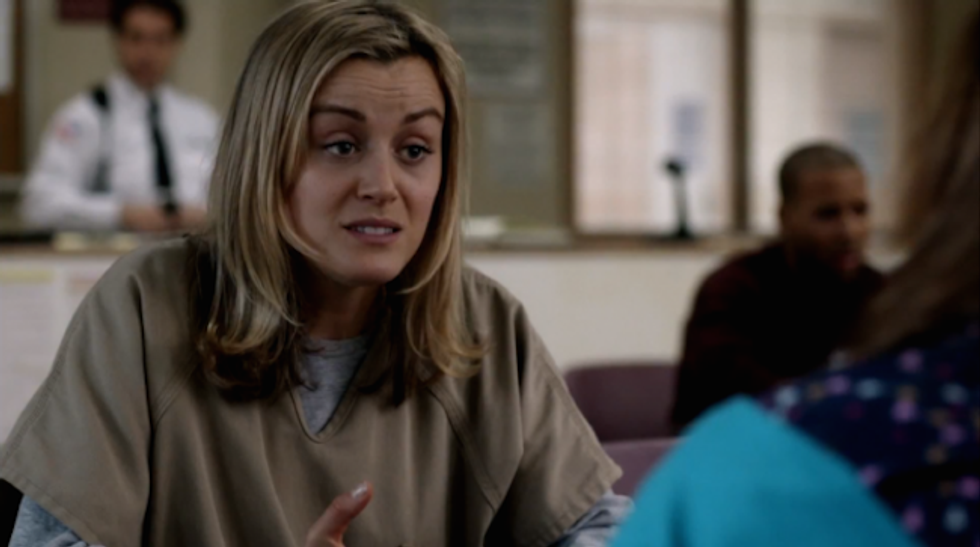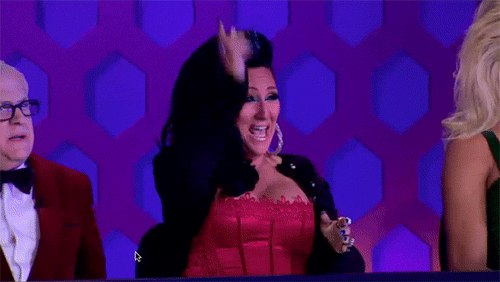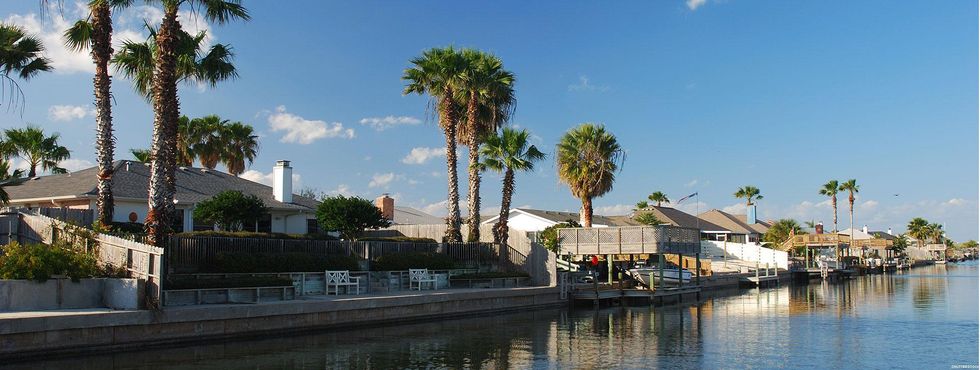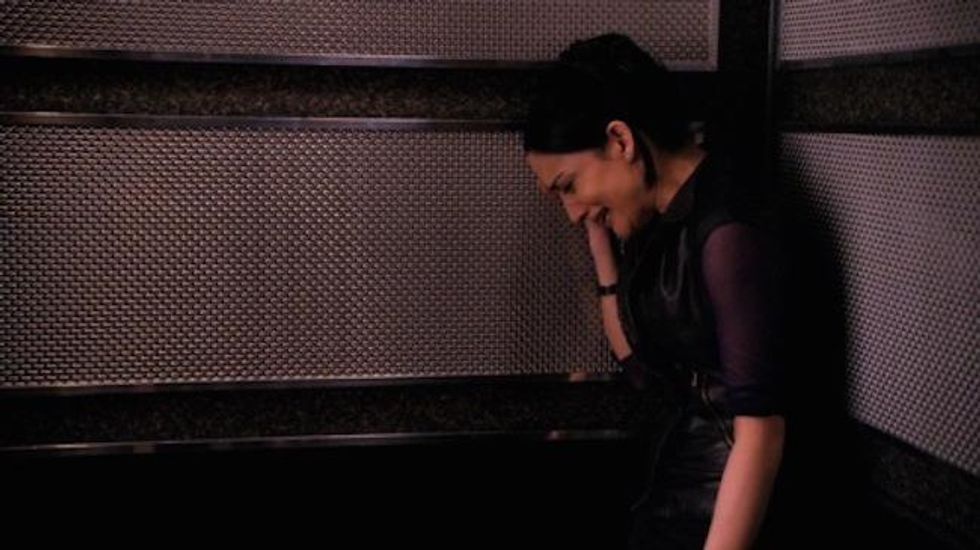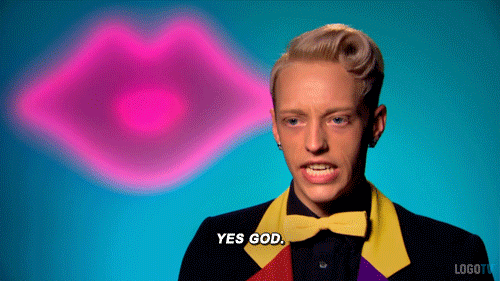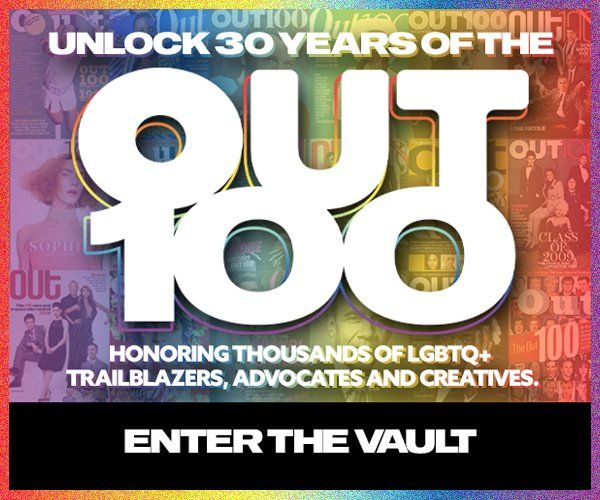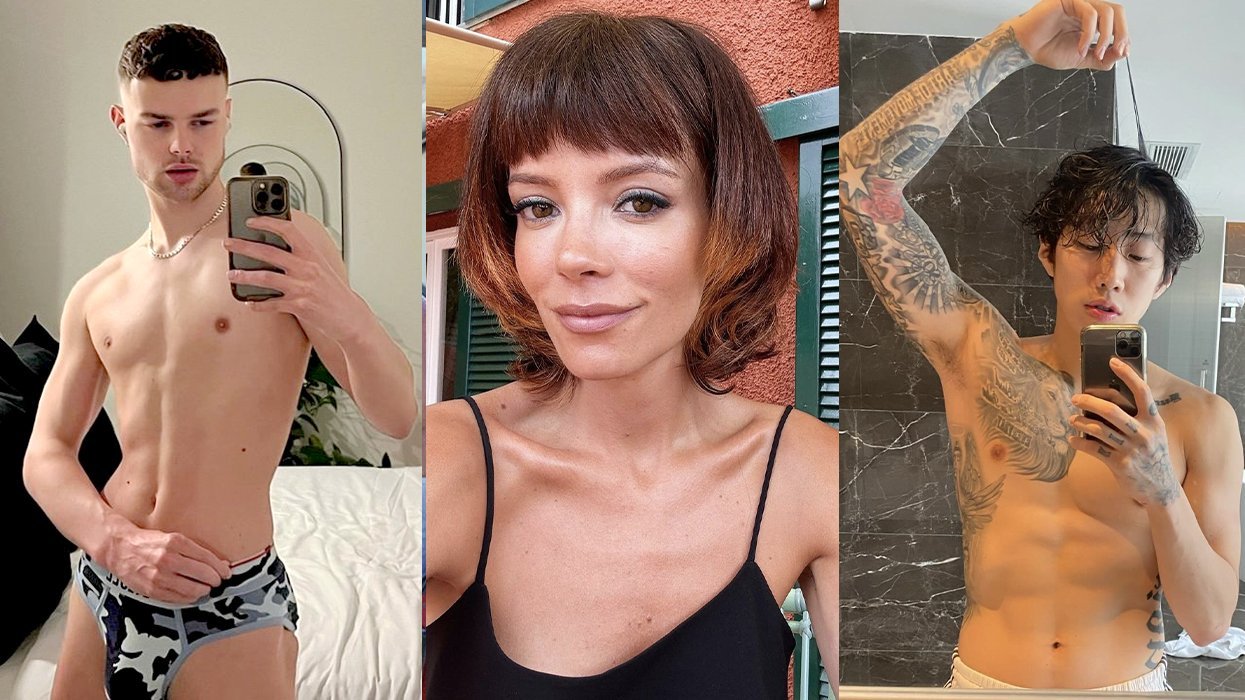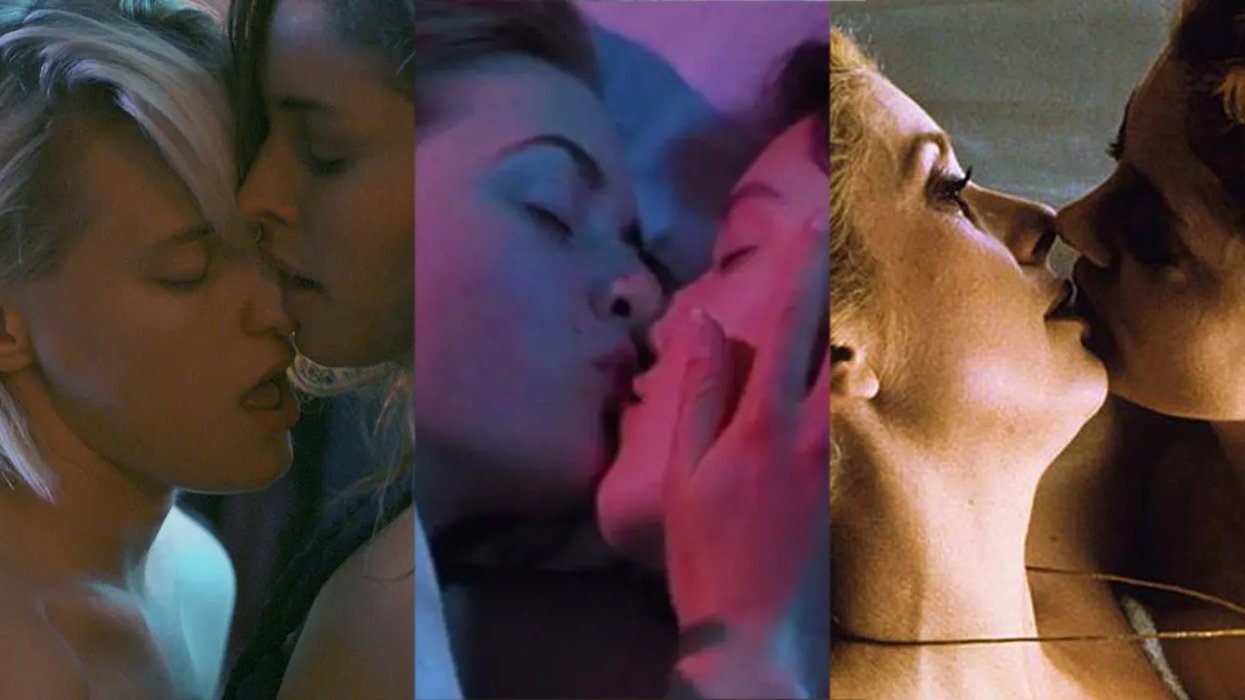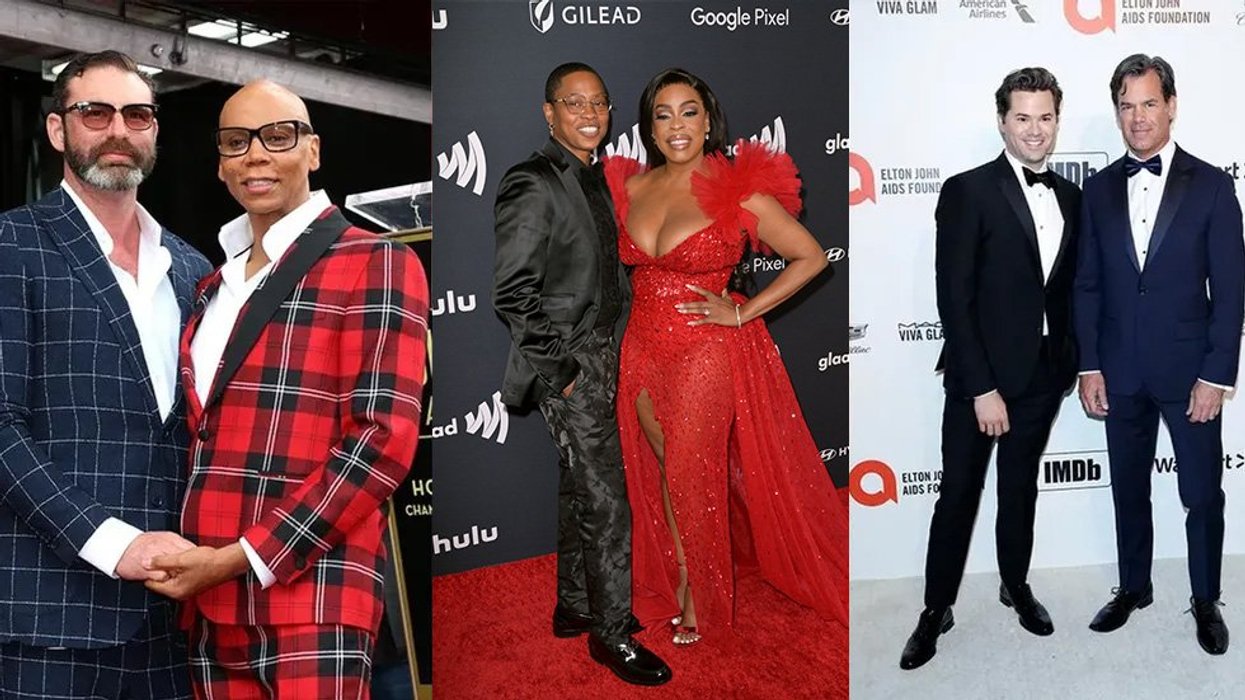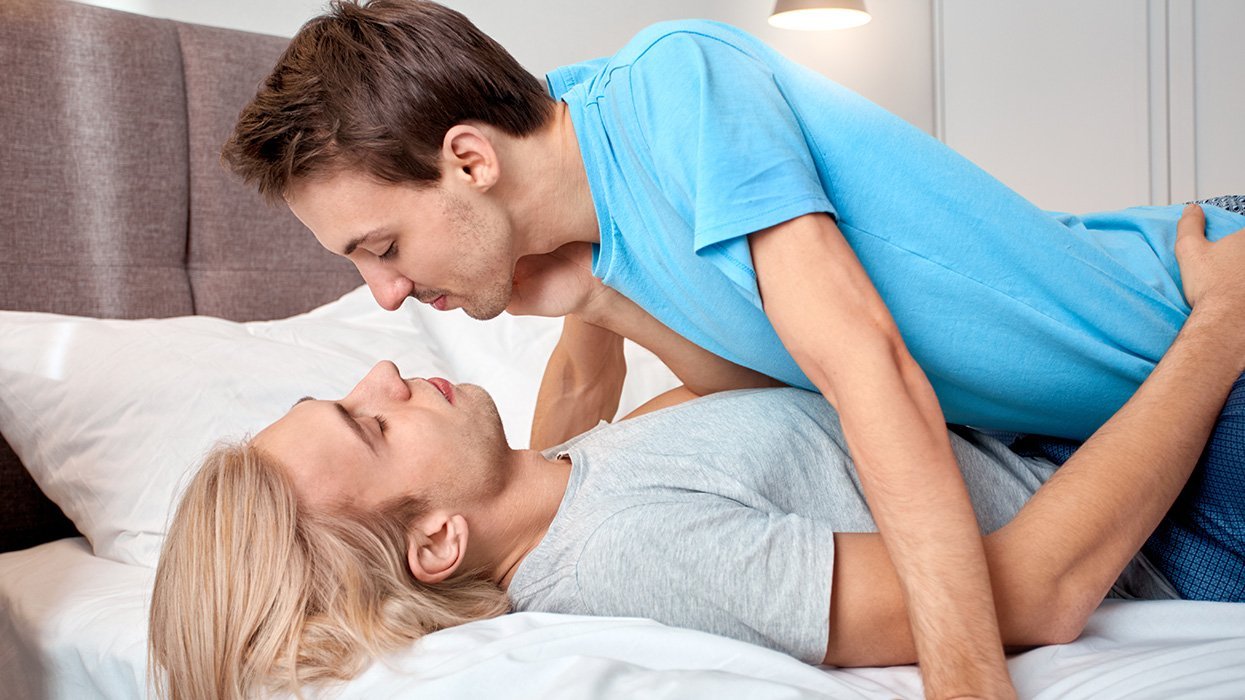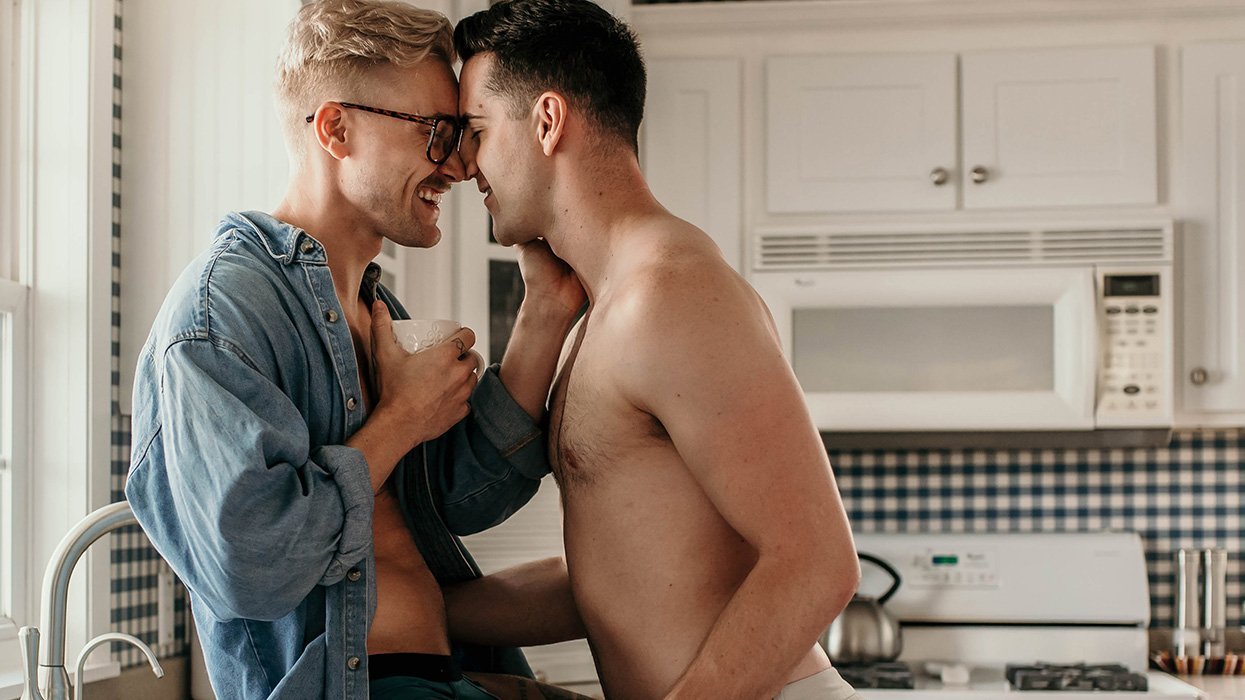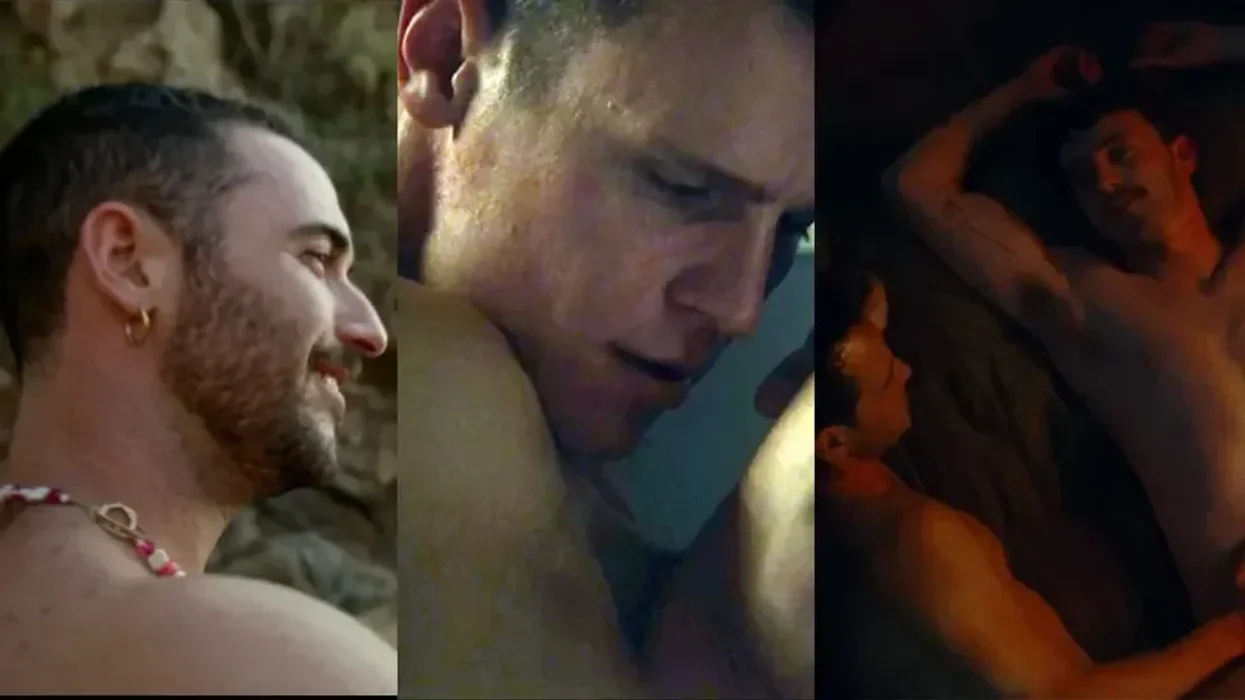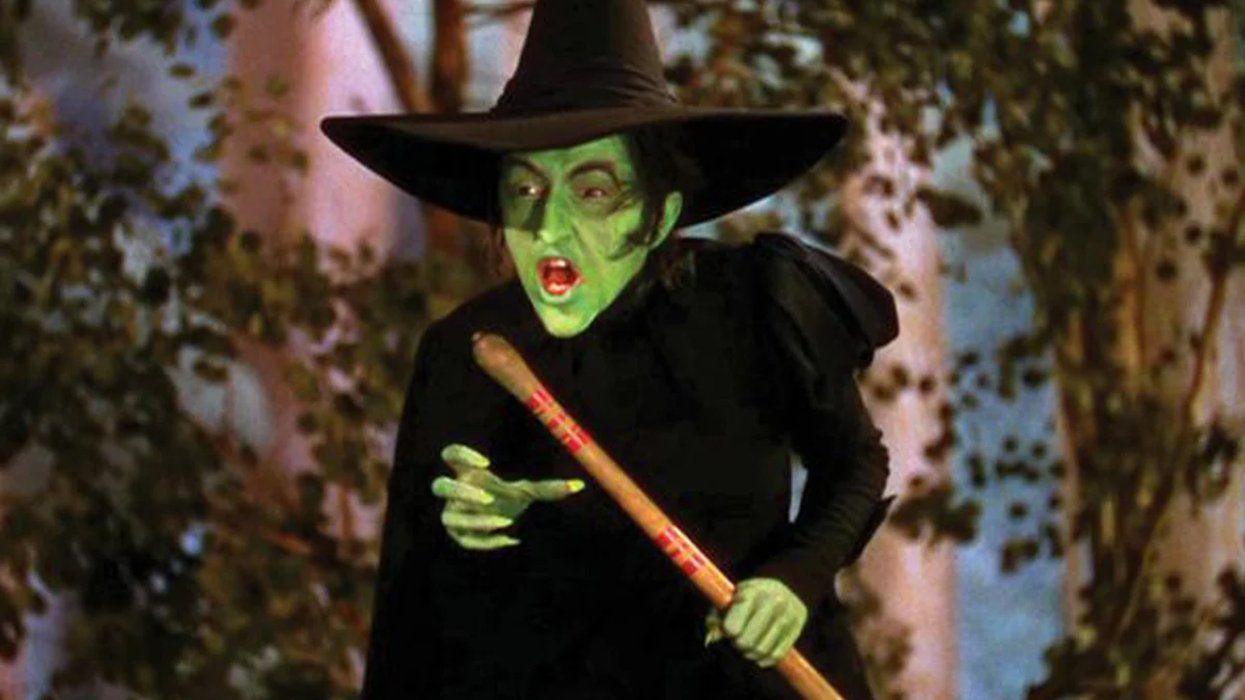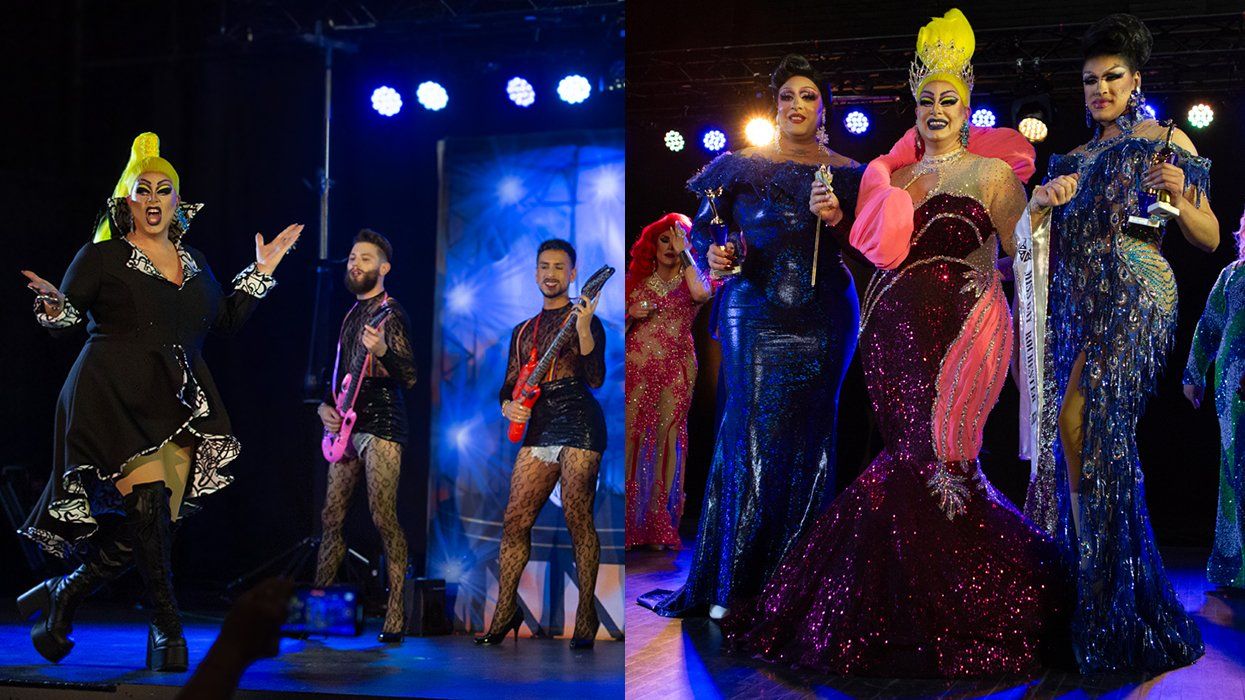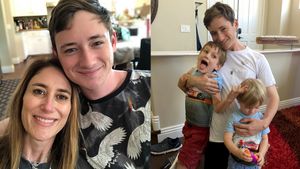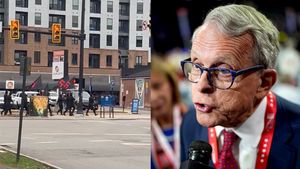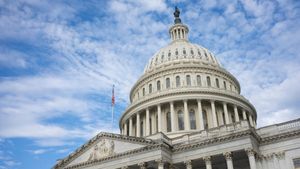Fans of The Real L Word have come to expect its cast members to deliver moments of rampant partying, unhinged lesbian drama that typically occurs in public and gratuitous on-air sex. While a handful of the TRLW gals did just that this season, Sajdah Golde was busy falling head over for a woman for the first time, and she did it with the cameras pointed squarely at her.
An ardent LGBT activist, Sajdah hails from North Carolina and recently settled in Los Angeles after earning a degree in political science and business administration at Howard University in Washington D.C.
Offering the perfect antidote to some of TRLW’s usual high jinks, Sajdah’s storyline was both compelling and exciting as Sajdah palpably fell in love, over the course of nine episodes, with Chanel Brown, the girl who caught Saj’s attention in episode one.
A political organizer in charge of volunteer recruitment with Vote for Equality at the L.A. Gay and Lesbian Center, Sajdah is no stranger to putting herself out there in the world. She is, after all, in charge of teaching young people how to discuss LGBT issues -- notably same-sex marriage—with voters who aren’t necessarily allies, a job that takes conviction and courage in itself.
But Sajdah bared herself in an entirely new way on TRLW, sharing her journey of being recently out, grappling with navigating the ups and downs of a new relationship -- all the while with a camera crew tagging along – and delivering a poignant mother / daughter storyline as her mother came to understand just what Sajdah’s being gay would mean for their future.
Sajdah chatted with SheWired about her incredibly important job at the Center, living life in front of the cameras, keeping her pants on in front of the cameras and just how her relationship with Chanel panned out.
SheWired: First off, congratulations on landing a spot on The Real L Word. What was the experience like for you having cameras in your face 24/7?
Sajdah Golde: In the beginning it’s difficult. You’ve got to remember not to pick your nose or something (laughs). It’s a little tough at first. But we actually had an incredible crew, so after a while they just felt like friends. You just figure that they’re there. Growing up my mother taught me that character is who you are when no one is looking, so I just had to continue to be myself even though I knew that there were people looking at that moment and that there would be lots of people looking soon.
Why did you want to put your life out there on reality television?
There are a lot of different reasons. I think the initial thought was there was this girl who I was interested in who was a fan of the show, and it was somewhat of an attempt to get more attention from her. Unfortunately, by the time it started I wasn’t even interested in her anymore. But that was certainly a part of it.
Have you heard from her since the show began airing?
Oh absolutely (laughs). I’ve heard quite a bit from her.
What were some of the other reasons for wanting to put it all out there for the cameras?
There was also the opportunity to tell a different story… I’m the first African American cast member, so now we get to see, from at least one African American female who identifies as a lesbian, how her life is.
As well as with the work I was doing (social justice work) I was able to talk more about that so the folks are more aware of the real problem here.
You touched on the work you do. Can you tell me more about what that entails?
Oh absolutely. At Vote for Equality I’m actually in charge of a lot of the volunteer recruitment.
That’s with the LA Gay and Lesbian Center correct?
Yes, we’re the political organizing and research arm of the LA Gay and Lesbian Center. And in my job I’m in charge of volunteer recruitment, which on the surface seems like, “oh, that’s easy,” but I actually have to convince a lot of people. I work with a lot of students --so young people --to be confident enough in their own personal stories to have the willingness to share it with someone who’s already unsupportive of marriage for gay and lesbian couples. The opposition during a marriage campaign around LGBT concerns has been using the same messaging since the 70’s to defeat LGBT initiatives.
More on next page...
\\\
(continued)
The kids, their arguments always come back to “the kids” and the supposed harm same-sex marriage will inflict on them.
Absolutely -- about the kids. What we’ve been trying to learn is how to combat that, and the best way we’ve been able to figure out how to combat it is if we actually go and talk to people who those ads impacted negatively. During Proposition 8 we lost nearly 700,000 folks who started out as supporters of same-sex marriage. They watched one ad twenty, thirty, forty times on television and then moved against us. So we actually go out and talk to them and show that ad and see how they respond to it so that we learn how to combat it.
I have to motivate young people to be willing to have those conversations with folks who voted against marriage for gay and lesbian couples back 2008.
We have all these little places or spaces, these safe zones, so to speak. A lot of people become comfortable in their safe zones. They’ll buy a house in West Hollywood, they’ll go to Trader Joes in West Hollywood. They won’t do anything outside of that. So it becomes really difficult for me to convince someone to go a step further so that we’re not just relying on safe zones but so that the entire society becomes a safe zone.
On the show we learned that you came out fairly recently, and that you then really dove into issues that affect the LGBT community. Did you know you were gay for some time before you came out?
There are actually a few different things you touched on there. As far as me getting into the work as quickly as I did, I have a degree in political science, so I always wanted to be a catalyst in my community.
Before that it was a connection to being a woman of African descent and then being a female. Those were the communities that I belonged to that were minorities in society, and therefore that’s where most of my focus went. When I came out, that just became another thing on my list of limitations, so I really wanted to do something to help in the same way that I helped in those other two places of limits.

Young Sajdah
But the number one reason I did it as hard as I did, with as much force, was because around the time I was coming out and learning my own footing in this world, it was on the news all the time about these young people that were committing suicide. I immediately started to feel guilty because I didn’t come out until I was 23, so I didn’t risk losing friends because they had been my friends for 10 years. I didn’t risk any chaos in my family because they were already proud of me. I felt guilty that I didn’t know -- and there’s no way I could have known -- but I felt guilty that I didn’t know sooner so that I could’ve been a young person and been gay and been proud of being gay, and I may have been able to change the life of some of the kids later. Well, I could have changed the life of my colleagues and peers who could have taught their younger brothers and sisters not to be bullies to somebody else.
And granted, who knows if I would have been able to have that impact, but I just felt guilty that I wasn’t there to do it in the first place. So this was me making up for all those young people who felt like they needed help in their lives. I love myself and would never hurt myself. I want every child to be able to feel that regardless of the situation.
Then you asked if I knew sooner. No, I wish I did! It’s a lot easier to learn at 13 than it is at 23 (laughs).
Getting back to the show, how accurately was your story portrayed in the finished project?
I’ll say this -- reality TV is very much like a memoir. They capture what they capture and it has to be presented in a way that’s entertaining to people. I mean, there was no false capture. So it’s as accurate as it could be.
More on next page...
\\\
(continued)
I think we got some glimpses of what your life is like day to day, like your work. And they also touched on your being on the LA Amazons football team. Are you still playing on the team?
Currently I’m not. The season is over. But yeah, it’s crazy because I actually played football in middle school, and it’s another reason why no one understands why I didn’t know I was gay earlier (laughs). But I was on the team with like 30 boys. I tried out and made the team.

I love it.
Hold on, Chanel’s calling me… Sorry about that.
No worries. I was going to ask if you and Chanel are still together but I’m going to assume you are.
Totally. We’re insanely in love. She’s not going anywhere.

Sajdah and Chanel
Your fans, the audience, were really bummed when you dumped her.
Oh My God. You guys only saw half of the fight. I was like, “No! They didn’t hear anything she said.” I looked like a complete asshole, but okay.
Being able to see myself in that moment was better than any thousand sessions of therapy. I was afraid of myself in that much rage and anger and while you couldn’t see the entire struggle that Chanel and I went through, there’s absolutely no reason for me to have that much anger. Anything she had to say was like, “Forget it I’m done.” And it just didn’t make sense, especially not for how much I care for her.
I get a lot of Tweets that say, “My friend says you remind me of them,” and that’s one moment that I don’t want anyone else to go along thinking is okay. That’s never okay.
From the perspective of the audience, it just seemed that you were so new to a lesbian relationship that there were bound to be missteps and struggles.
It’s unfortunate that it’s the light that folks got to see of Chanel and I because the relationship that we have now is completely different than anything that was ever televised. We met on television. That’s difficult within itself. I mean, I have an entire network behind me and I’m expecting her to trust me immediately and then when she didn’t I was uncomfortable with it, so it was challenging. It definitely was difficult to watch… it was so tough for me to watch. I couldn’t even get on Twitter that night because I was like, “I don’t want to hear anyone.”
But we have definitely made it through it and I listen now. Not that I didn’t before. But I always listen now even when it hurts. And we’ve learned to communicate in a way that’s respectful to each other and respectful to each others’ feelings.
More on next page...
\\\
(continued)
Several of the cast members not only got naked on air but also had full-on sex on camera, but that didn’t happen with you and Chanel. Was that something from the beginning you said would not be filmed?
Absolutely. I mean, my mother’s in the first episode saying, “no sex.” I feel like there’s a lot to my story and to Chanel’s story. There’s a lot to us as individuals than what we do in the bedroom and it’s a tough line you play.

For me, like with the strap on scene last year, I learned some tips. I was like okay. Alright Whitney! I was taking notes. So within the community, it’s an opportunity for some to learn, it’s and opportunity to teach. Like my mom had questions about lesbian sex. I can say, “Here, look at Romi and Kelsey. This is a scissor.” You know?
That scene was like a marathon primer on lesbian sex.
I was taking notes there too. Nah, I’m kidding, but I could just have her (Sajdah’s mother) refer to that episode.
But it’s risky because folks that don’t support gays and lesbians – one of their main reasons for their homophobic beliefs is they assume that being gay is only about sex, and there’s a risk of perpetuating that stereotype when there’s sex in every single episode. For me it was like, “I know someone’s doing it. We don’t have to add to it.” There’s too much to risk there. If I had to decide if it’s between folks in the community learning more opposed to the opposition pretty much getting ammunition for their current beliefs I wouldn’t do it. I need the world to be safer for my kids.
Good point. Speaking of your L Word cast mates, do you see any of them? Are you friends?
Oh yeah, we’re cool. We just had a party on Saturday for Whitney’s birthday. They’re like all my big sisters. They’ve been here and know a lot more than I do in some categories (laugh). I moved here to LA and now I get to hang out with the most popular lesbians in the world right now on the regular, so that’s pretty cool.
What would you say was the best part of working on the show and then the worst part of it?
The best part of it was that someone was able to relate to my story and now there’s an entire population of people that come to me seeking advice. They want to talk to my mother about how I came out to her…
There’s pretty much like a population of young girls who look to me in support in their coming out. Chanel gets a lot of those too. My mom has a Facebook fan page where folks are coming and asking her for ways to talk to their parents, so that’s definitely the best part.
What was bad about being on the show? I guess that it’s only a snippet of my life and I guess some people assume that that’s all of it. And there’s a great deal more to me than what could’ve ever been captured in a few months.
More on next page...
\\\
(continued)
How do you feel about the reception from those people who are just out there to hate on The Real L Word?
It’s unfortunate, because I feel like since they’ve already drawn conclusions on what The Real L Word is that they were somewhat distracted when they got a real story. I was like, “I’m what you’ve been asking for. You wanted to see something real, so I’m sorry I didn’t comb my hair today. I’m sorry I didn’t wake up and put makeup on before producers got there. I thought you wanted it real.” So that was quite unfortunate.
Does the negative feedback hurt, or do you just chalk it up to that’s how some people are?
It definitely doesn’t hurt. I know it comes with the territory, and for the amount of people that gain something, I’m comfortable dealing with the few that didn’t.
Do you have any projects in the works that you’d like to talk about?
I’m actually putting on this charity basketball game, a celesbian basketball game. Quite a few of the other girls going to play in it. It’s going to be September, 24.
I have a marriage equality campaign that I’m launching soon, which is called The M. E. Movement. We’ll be hosting this celesbian charity basketball event where the proceeds will go to campaigns that support equality, not just marriage equality because right now we’re facing The Fair Education Act, so anything in support of equality actually.

I have one more question. Would you do The Real L Word again?
Absolutely. I think the good definitely outweighed the bad. I would do it just for Showtime, just for The Real L Word because they’ve connected me to some absolutely amazing people that allowed me into their lives at this point, and it was because of that show. So I don’t bite off the hands that feed me. I’d definitely do it again.
Follow SheWired on Twitter!
Follow SheWired on Facebook!










































